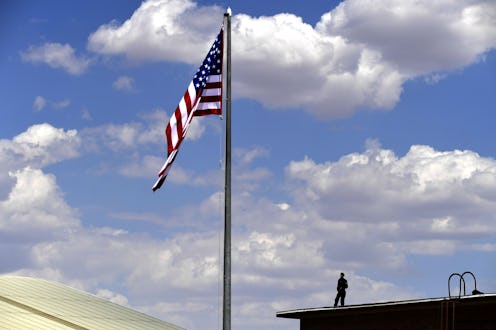News
Does Guam Have Electors?
In an election year, you're inundated with maps, maps, maps — all sorts of fancy colors, from royal blue to burnt sienna, stripes and dots. With all those flashy graphics and moving parts you'd think they'd be a complete representation of every last drop of America. But what's usually on display is just the mainland states (plus Hawaii and Alaska). That's because those are the ones granted the coveted electoral votes. But what about U.S. territories — when it comes to the general election what do the territories do come Nov. 8? For example: does Guam have electors?
Guam sits in the western part of the Pacific Ocean and is a U.S. island territory in Micronesia. Even though being born in Guam makes one a U.S. citizen since it's part of a U.S. commonwealth, the territory is unincorporated; that means citizens of Guam get to vote for their own local legislators but they don't have a say in the general election.
It's not just Guam, technically there are 16 territories altogether, but there are five that are permanently inhabited, meaning naturally-born residents are granted citizenship: Puerto Rico, the U.S. Virgin Islands, American Samoa, Guam, and the Northern Mariana Islands.
But that's not to say the people living in territories don't have any say at all —Guam, for example, has designated delegates for the Democratic and Republican primaries. Therefore, presidential candidates still fight for the Guam vote in the early stages of the election, though it only has 12 for Democrats (five of which are super delegates) and nine for Republicans. To put that in perspective, Rhode Island, the smallest state, had 24 Democratic delegates and 19 Republican ones.
And more importantly, Guam is not granted any electors in the Electoral College, so residents of Guam, and the other major U.S. territories for that matter, can't vote in the general election. Living in a democracy, we're privileged to have the right to vote for the people who will become the next leader of the free world. But the bit of a loophole is: that's only if you're one of the Americans who lives in one of the incorporated 50 states or the District of Columbia (whose residents actually only got that right in 1961).
It's a somewhat hypocritical since, on the other hand, residents of Guam are allowed to fight in the war on America's behalf and it's the same with other aforementioned territories, too. And in Guam, one in 20 residents are military veterans, according to a 2014 Huffington Post article. They serve and risk their lives for the United States — even when they don't get a say in their commander-in-chief.
